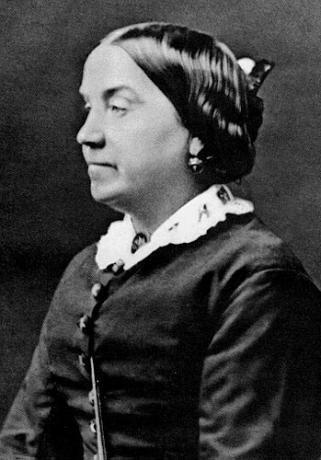FriedrichEngels was a German writer, journalist, economist, philosopher and political theorist. Engels wrote, in partnership with Marx, the Manifestcommunist, and developed dialectical historical materialism, also with the Karl Marx partnership. He was one of the great theorists of communism in the nineteenth century, and had a great motivation for studying and contribution to this area is the observation of the condition of workers in a factory belonging to his family, in Manchester.
Read too: Max Weber – contemporary of Engels and in favor of capitalism
Biography of Friedrich Engels
Engels was born in 1820, in the town of Barmen, in Germany, son of a wealthy German industrialist. Engels started the so-called secondary course, developing his particular interests in the study of philosophy, law and economics, but did not complete it.
Still in Barmen, Engels started to participate in the Young Hegelian group. The group had been founded after the death of the celebrated philosophy professor Georg Wilhelm Friedrich Hegel, and aimed to produce a more liberal and socialist interpretation of Hegelian writings.

In 1842, at the age of 22, Engels goes to Manchester, England, to take over a head position in one of his father's factories. Upon coming into contact with English industrial workers, the philosopher is touched by the extremely precarious life they led. There begins his intellectual work of opposition to capitalism which later resulted in a fruitful partnership with Karl Marx.
Do not stop now... There's more after the advertising ;)
In 1844, Engels returns to Germany and, passing through Paris, personally know Marx. At the end of 1844, Marx and Engels wrote the book The Holy Family.In 1845 Engels published The plight of workers in England.
On his way to Manchester, Engels meets Mary Burns, with whom he had a stable relationship until his wife's death in 1863. Both were against marriage, as they considered it a bourgeois institution. After Mary's death, Engels began a relationship with her sister, Lydia "Lizzie" Burns, also without a civil or religious marriage and which lasted until 1878, the year she died, at 51 years of age.

Friedrich Engels Theory
Engels was a socialistconvinced. Since joining the group of Young Hegelians, the philosopher has been in contact with the socialist ideals. Her stay in Manchester and her work in her father's factories made him realize how grave the plight of English industrial workers was. That reality check opened Engels' eyes to the need to think about a social theory and apply it in order to reduce the social differences.
Along with Marx, Engels is considered a theorist of scientific socialism, who establishes a distinction between social classes that must be overcome for social justice.

Friedrich Engels Socialism
The socialism created by Marx and Engels was different from all socialist ideas thought before. The theory of these philosophers aimed to transform socialist ideals into a theoryscientific capable of being applied in a practical reality. To this end, thinkers created a method of social analysis called dialectical historical materialism and established the need for a revolution for effective change in society.
Marx and Engels saw in the capitalist system an unjust appropriation of the workers' work by the bourgeois, and only the latter got rich while those lived in poverty. The solution pointed out by the philosophers was a revolution that would unite the strength of all workers in order to overthrow the capitalist system and take control of the means of production (the factories).
After the revolt, a strong state and dictator it would be created and managed by the workers, this State would have to control all the old private property as public property, besides making the creation of the first one unfeasible. This dictator state was called statesocialist. The tendency, in the authors' view, is that it would evolve into a perfect communist state, already without private property and without the division of Social classes.
See too: Anarchism - political theory that also aimed to eliminate capitalism
Main works by Friedrich Engels
The Holy Family: Referring to the Bauer brothers, philosophers and theologians who were part of the Young Hegelians, Marx and Engels attacked the group's ideas which, in their view, were anti-Semites and from a restricted view of what socialism was.
The situation of workers in England: Engels' time in Manchester led to the writing and publication of this book, dedicated to exposing the precarious situation of industrial workers in England in the 19th century.
communist manifesto: Written in partnership with Marx, this book is more a political pamphlet than a philosophical work. O Manifestcommunist is the first work of the authors and calls for the union of workers for the overthrow of the capitalist system through a strong revolution.
Socialism – utopian and scientific: This work was written to criticize and point out the shortcomings of utopian socialism and to promote scientific socialism as a necessary evolution of socialist theories.
The origin of the family, private property and the state: This is a work that denounces the hypocrisy of the family institution and its changes throughout history to satisfy the needs of capitalism. Engels sees in the values of the traditional family a subservience of the female figure and a paternalism that only serves to perpetuate capitalism in the nineteenth century.
Read too: Frankfurt School: A New Interpretation of Marxism, Politics and Sociology
Phrases by Friedrich Engels
"The proletarian movement is the autonomous movement of the immense majority for the interest of the immense majority."
"According to the materialist conception of history, the determining factor in history is, ultimately, the production and reproduction of real life."
"Those who work in the bourgeois regime do not profit, and those who profit do not work."
“Political, legal, philosophical, religious, literary, artistic, etc. development. rests on economic development. However, all these developments react equally on each other as well as on the economic base.”
by Francisco Porfirio
Philosophy teacher


